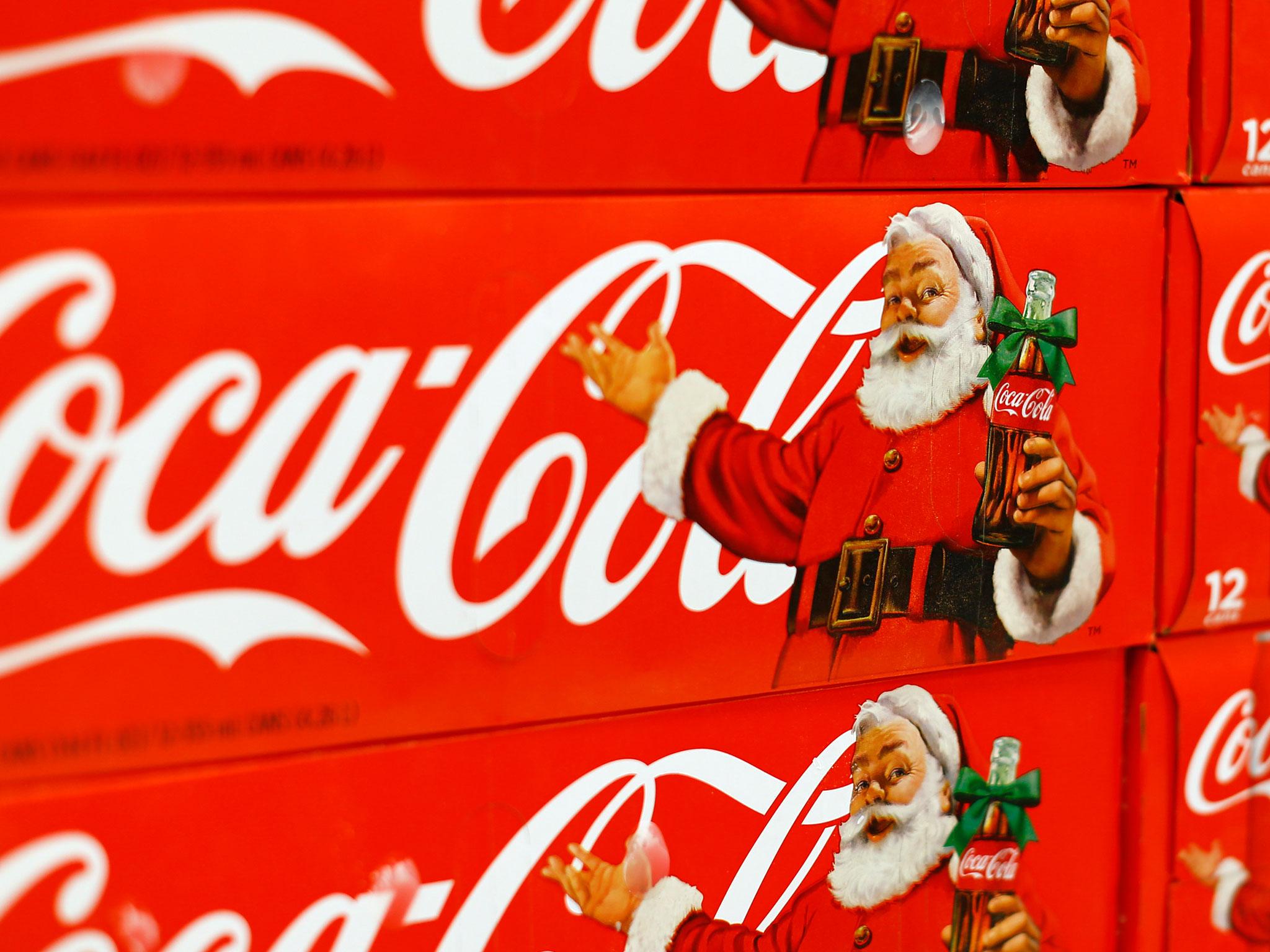Coca-Cola's Christmas lorry tour should be banned for 'false gifts of bad teeth and weight problems', say health experts
About a third of 10 to 11-year-old in England's north-west are overweight or obese and a similar proportion of five-year-olds have tooth decay

Your support helps us to tell the story
From reproductive rights to climate change to Big Tech, The Independent is on the ground when the story is developing. Whether it's investigating the financials of Elon Musk's pro-Trump PAC or producing our latest documentary, 'The A Word', which shines a light on the American women fighting for reproductive rights, we know how important it is to parse out the facts from the messaging.
At such a critical moment in US history, we need reporters on the ground. Your donation allows us to keep sending journalists to speak to both sides of the story.
The Independent is trusted by Americans across the entire political spectrum. And unlike many other quality news outlets, we choose not to lock Americans out of our reporting and analysis with paywalls. We believe quality journalism should be available to everyone, paid for by those who can afford it.
Your support makes all the difference.A Coca-Cola truck tour over the festive season should be banned, according to public health experts, amid complaints the company is “hijacking Christmas by bringing false gifts of bad teeth and weight problems to our children”.
Writing in an editorial in the BMJ medical journal, Robin Ireland, director of Food Active, a group set up by public health directors to tackle obesity, and John Ashton, a public health consultant in Liverpool, complained about press coverage of the tour in the north-west of England in which children were given a free can of the soft drink.
They noted that 33.8 per cent of 10 to 11-year-olds in the north-west were overweight or obese and 33.4 per cent of five-year-old had tooth decay.
Coca-Cola pointed out that people could choose from one of two zero-sugar version as well as traditional Coke.
The firm also said dental health in the north-west had been improving and childhood obesity was lower than at any time since 2010 so it was “difficult to understand why they [the experts] think banning the Coca-Cola Christmas truck will improve public health”.
However the health experts wrote: “The path of associating unhealthy products with health, well-being, and healthy lifestyles is one that has been well trodden down the years by the tobacco industry.
“The lessons have not been lost on Coca-Cola. In fact, you could argue that Coca-Cola started even earlier than tobacco.
“At Christmas, Coca-Cola’s marketing goes into overdrive as newspapers across the country regurgitate press releases for its Christmas truck tour, with advertorials promoting the truck as a Christmas tradition,” the public health experts wrote.
“And of course the truck is just the latest of Coca-Cola’s campaigns to become a holiday brand and, indeed, to help brand Santa Claus himself.”
They said the “stakes have never been higher for the UK sugary drinks industry”, pointing to the Government’s decision to introduce a levy on soft drinks as part of its childhood obesity strategy from 2018.
And they highlighted a Public Health England report that suggested reducing the opportunities to market and advertise high-sugar food and drink.
“Should this form of advertising and marketing be banned, given the growing evidence of the effect that marketing of unhealthy food and drink has on children?” the public health experts said.
“We believe it should and will continue to push for national action from organisations such as Public Health England to stop similar campaigns next Christmas.”
They complained that while the Coca-Cola truck tour was covered by the regional press, a letter organised by Food Active about the health impacts of a high-sugar diet and criticising the tour had not been published.
The letter, signed by 108 people including five public health directors and current and past presidents of the Faculty of Public Health, said: “We can celebrate without allowing Coca-Cola to hijack Christmas by bringing false gifts of bad teeth and weight problems to our children."
A spokesperson for Coca-Cola Great Britain said the tour, which began in 2011, was run in accordance with the firm’s “responsible marketing policy”, adding that it did not provide drinks to under-12s unless their parent or guardian agreed.
“Looking at the data referenced by the BMJ opinion piece shows that the dental health of children in the North West has been consistently improving since 2008 and that childhood obesity is lower than at any time since 2010,” the company said.
“It is therefore difficult to understand why they think banning the Coca-Cola Christmas truck will improve public health in the region.
“The fact is, as government data show, sugar intake from soft drinks by both children and teenagers continues to decline and consumption of full sugar soft drinks in general has fallen by 44 per cent since 2004.
“We will continue to take actions to help people to reduce the sugar they consume from our range of drinks, but the evidence suggests the current focus on sugar and soft drinks alone will not address the problem.”
Join our commenting forum
Join thought-provoking conversations, follow other Independent readers and see their replies
Comments